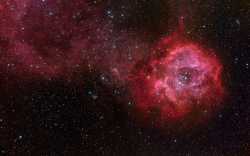[13 / 2 / 6]
Post your ideas about the nature of the space and time ITT. All of us can give some ideas, and we'll discuss them together. Here's some ideas I have to start off:>the properties of space, and the objects in space come entirely from the geometry of space, and stuff like electric charge, and all other properties, as well as objects such as the elements, or simple stuff like chairs and tables are geometric in origin alone. >every area of space or objects acts as a automata, taking in a input, changing state, and emitting a output. the passage of time would then be the counting of each time the states of these areas or objects change >two areas of space are beside each other only if they can directly send an output or take an input from the other area. i was thinking a bit about if two areas are beside each only if they do send a output or take a input from the other, instead of only if they can, but i'm not too sure about it yet. >areas of space are the same thing as objects, in the nature of the universe, only humans classify them differently for convenience. this would mean that every area of space is something, and if two things are apart, that's only true if somethings between them. And if there is nothing between them, that means they are beside eachother. So empty space would not actually be empty. this non-empty space would be the medium for light.
Anonymous
Quoted By:
>>17010036 i don't know i am not qualified to answer so i will take a nap on your behalf
Anonymous
earth core will invert itself in 7 years due to gastrointestinal changes
Anonymous
Quoted By:
As a consequence of the second point, the beginning of the universe can be discussed. Assume the universe had a beginning before now. Two possibilities exist:>no area of space at the time of the beginning received a input. >some area of space present at the beginning of time received a input
Anonymous
Quoted By:
>>17010059 i heard the inner core slowed down or something compared to the mantle. i don't know much about it since i haven't read the paper though.
Anonymous
Quoted By:
>the continuity of the space
Anonymous
Stuff like this is interesing, and hard to comprehend.
Anonymous
>>17010764 i think we will reach a limit to how small of a object we can observe, and we'll also be limited by how large of a object we can observe because light seems to only has a finite speed so we'll never be able to know what the vast majority of the unobservable universe looks like. so we'll be like those ants then, we'll never be able to observe the undending reaches of space since we are finite beings. But the nature of space and time as a whole, i think that could be derived since they are the same everywhere in the whole world, at least I hope that they can be. But language might be a limiting factor, and it mightn't be possible if that's the case.
Anonymous
does /bant/ think every area in space can always be split into smaller areas, or is there a limit to how small a area of space can be?
Anonymous
>>17011314 No, I think space could be infinitely small, as numbers can. So likely there's no limit, that of course leaves me with many questions.
Anonymous
Anonymous
Anonymous
Quoted By:
if a area of the world did not ever interact with the rest of the world, so that it would be independant from the world, it would be no different as that area not existing at all, you wouldn't be able to tell the difference.

